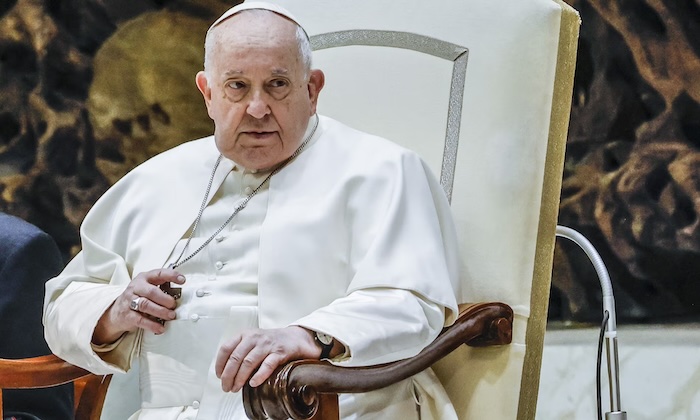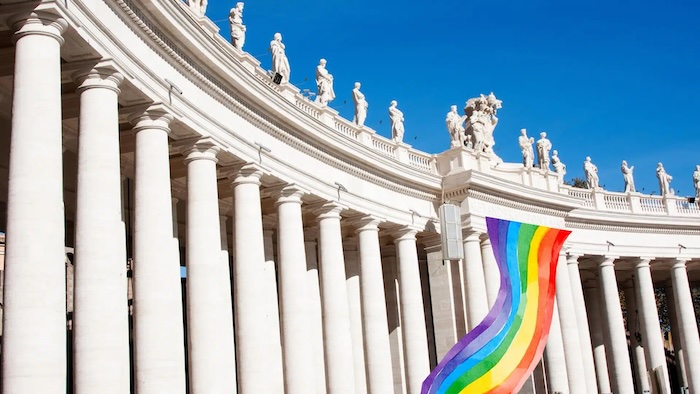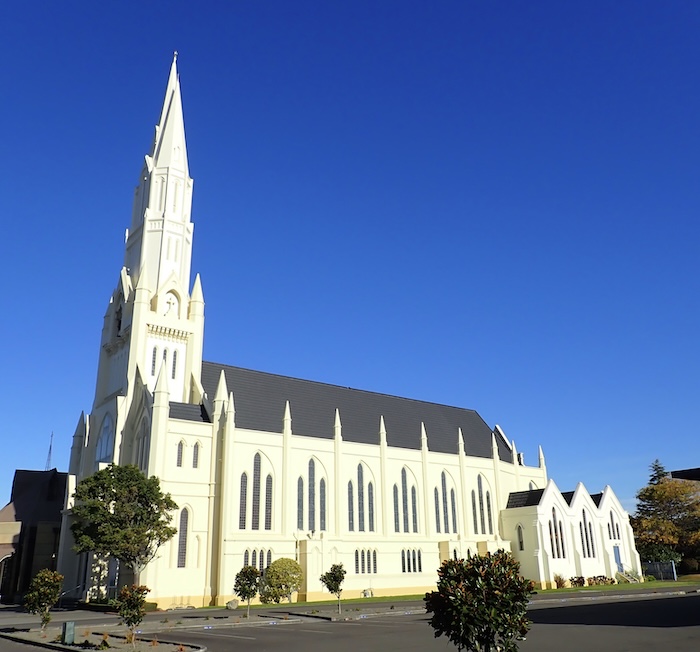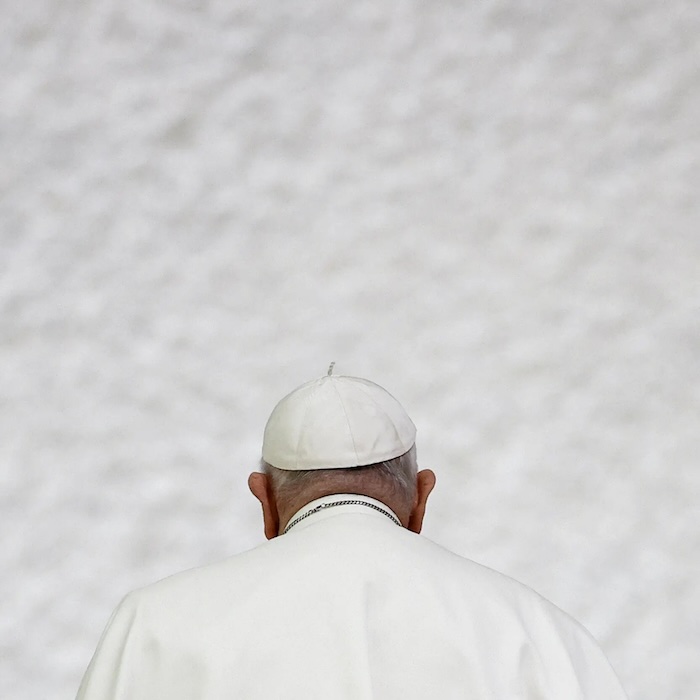— In a statement, the pastor of St. Patrick’s Cathedral in Manhattan said the church was not aware of Ms. Gentili’s background, or her avowed atheism, when it agreed to host the Thursday service.
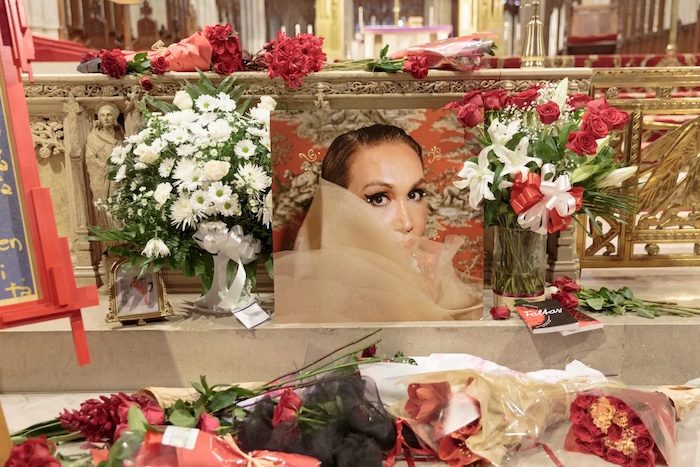
By Liam Stack
The Roman Catholic Archdiocese of New York condemned the funeral of a transgender community leader that was held at St. Patrick’s Cathedral on Thursday, calling the event an insult to the Catholic faith and saying it was unaware of the identity of the deceased — or her vocal atheism — when it agreed to host the service.
The funeral, which drew well over 1,000 people, celebrated the life of Cecilia Gentili, an activist and actress well known for her advocacy on behalf of sex workers, transgender people and people living with H.I.V. She was also a self-professed atheist, a topic around which she built a one-woman Off Broadway show.
The service on Thursday was an event that most likely had no precedent in Catholic history. The pews were packed with mourners, many of them transgender, who wore daring high-fashion outfits and cheered as eulogists led them in praying for transgender rights and access to gender-affirming health care.

One eulogy, a video clip of which was widely shared online Friday, remembered Ms. Gentili as “Saint Cecilia, the mother of all whores,” to the thunderous cheers of a nearly full cathedral.
Catholic liberals, including some parishioners at St. Patrick’s, said that regardless of how some mourners behaved, the church had done a good thing by hosting the funeral of a transgender person. But the response from conservatives was fiery.
CatholicVote, a conservative group, called the funeral “unbelievable and sick” and said it was “a mockery of the Christian faith.” The Rev. Nicholas Gregoris, a co-founder of the Priestly Society of Saint John Henry Cardinal Newman, called it “revolting,” a “blasphemous & sacrilegious fiasco” and “a deplorable desecration of America’s most famous Catholic Church.”
On Saturday, the archdiocese released a statement saying it shared the anger of conservative Catholics over what it called “the scandalous behavior” at Ms. Gentili’s funeral. The Rev. Enrique Salvo, the pastor of St. Patrick’s, said the church was not aware of Ms. Gentili’s background or beliefs when it agreed to host the service.
“The cathedral only knew that family and friends were requesting a funeral Mass for a Catholic, and had no idea our welcome and prayer would be degraded in such a sacrilegious and deceptive way,” the pastor said.

The funeral’s organizer, Ceyenne Doroshow, said on Thursday that Ms. Gentili’s family had kept her background “under wraps” because they feared the archdiocese would not host a funeral for a person it knew was transgender.
Ms. Doroshow said the family wanted Ms. Gentili’s funeral to be at St. Patrick’s because “it is an icon, just like her.”
On Saturday, the Gentili family was incensed by the church’s criticism and accused the archdiocese of “hypocrisy and anti-trans hatred” in a statement.
The family said the L.G.B.T.Q. community would continue to celebrate Ms. Gentili for how she “ministered, mothered and loved all people.”
“Her heart and hands reached those the sanctimonious church continues to belittle, oppress and chastise,” the family said. “The only deception present at St. Patrick’s Cathedral is that it claims to be a welcoming place for all.”

The day before the funeral, the archdiocese described the service as a routine event, even after it was informed by a reporter that Ms. Gentili was a transgender activist.
On Wednesday, a spokesman for the archdiocese, Joseph Zwilling, said that “a funeral is one of the corporal works of mercy,” a part of Catholic teaching the church has described as “a model for how we should treat all others, as if they were Christ in disguise.”
But on Saturday, Father Salvo said in the statement that the cathedral had held a special Mass of Reparation to atone for the funeral. Mr. Zwilling said the event happened that day.
“That such a scandal occurred at ‘America’s parish church’ makes it worse,” Father Salvo said, referring to the funeral. “That it took place as Lent was beginning, the annual 40-day struggle with the forces of sin and darkness, is a potent reminder of how much we need the prayer, reparation, repentance, grace and mercy to which this holy season invites us.”
New York City is home to roughly a dozen gay-friendly Catholic parishes that in many ways reflect the church’s softer tone on sexuality under the leadership of Pope Francis. But St. Patrick’s Cathedral, the seat of the powerful archdiocese, is not one of them.
Ms. Gentili, who died on Feb. 6 at age 52, had a complex relationship with religion, which she explored last year in her Off Broadway show, “Red Ink.”
After a religious upbringing, Ms. Gentili said in an interview last year, she came to identify as an atheist because she felt rejected by so many Christian denominations as a transgender woman.
“I used to go with my grandmother to the Baptist Church, and they didn’t want me there,” she said, adding: “I used to go to the Catholic Church, too, and both were such traumatic experiences for me as a queer person. So I came to identify as an atheist, but I know that so many trans people have been able to find a relationship with faith in spaces that include them.”
Complete Article ↪HERE↩!

